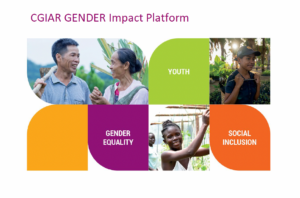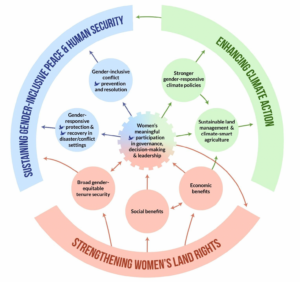Gender is a critical factor in how people respond to, and recover from major disruptions such as natural disasters or disease outbreaks. Climate-related disasters are known to pose-gender specific problems that disproportionately affect more women than men. Similarly, the COVID-19 pandemic’s impacts along gender lines are enormous, with women being the worst affected. Existing studies have drawn connections between COVID-19 and climate change, with most arguing that responses to the pandemic provide an opportunity to tackle climate change through emission reduction strategies as part of recovery efforts. We introduce a new dimension to this connection by demonstrating that though different phenomena, COVID-19 and climate change are not so dissimilar in terms of their gendered socioeconomic impacts. Through a systematic review of the available literature, we establish a nexus between these impacts, and examine how the gender responses to COVID-19 can be leveraged to address gender-related climate impacts. We find that social protection, labor market, economic, and violence against women measures adopted in response to the pandemic provide a good opportunity to address the gender impacts of climate change as well. However, current COVID-19 gender responses do not incorporate the interconnections between the gender impacts of the pandemic and climate change. Adopting a nexus approach could help to leverage COVID-19 responses to address the gendered socioeconomic impacts of both crises.
Authors: Mark M. Akrofi, Mudasiru Mahama and Chinedu M. Nevo
Source: Springer Nature Journal




